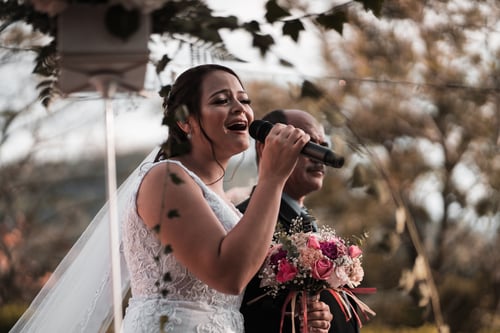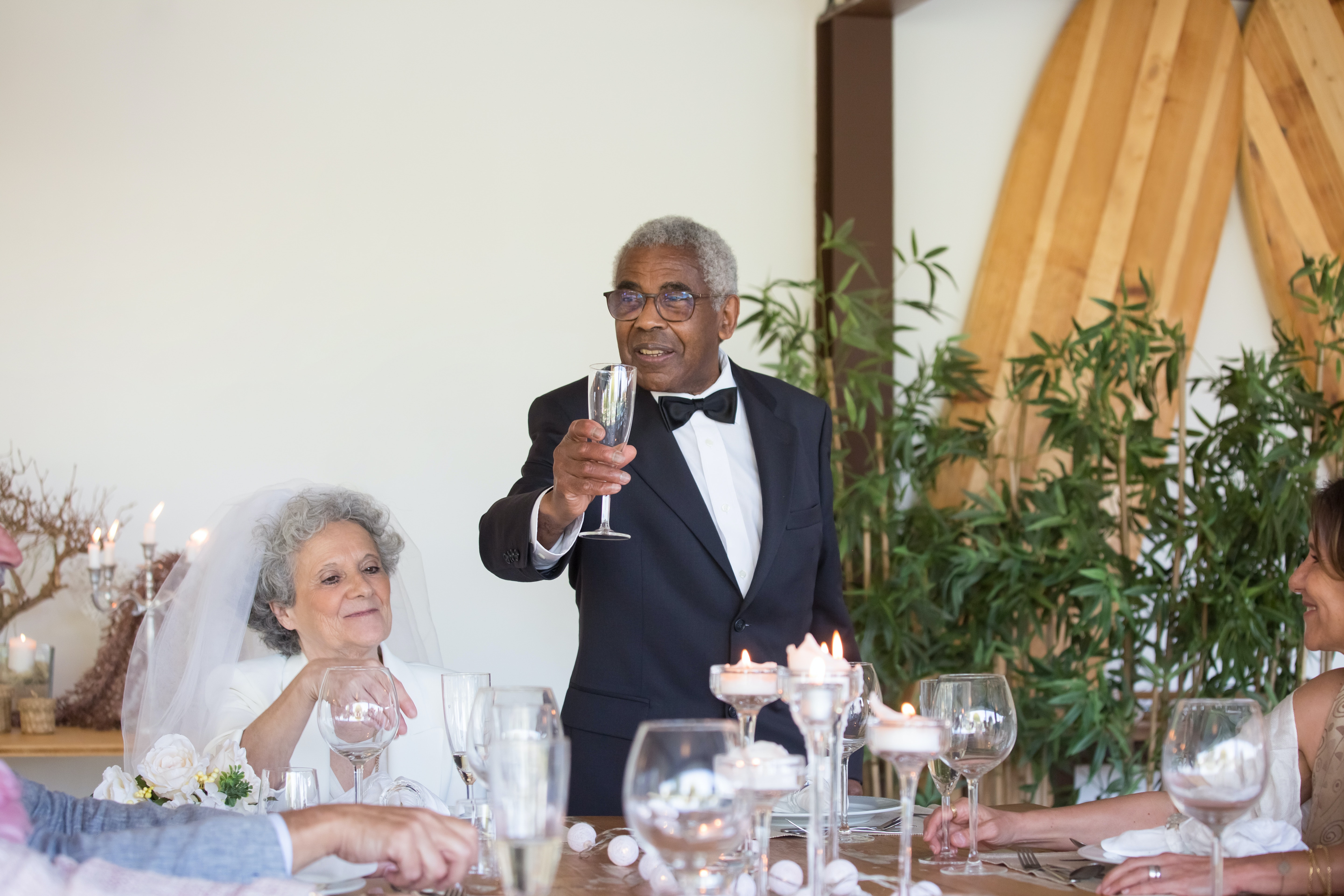Most of us are not natural or practised public speakers. And yet when you're given the honour of making a wedding speech, you're suddenly expected to engage hundreds of listeners and do eloquent and poetic justice to your loved ones. It's worth remembering that even the most well known public speakers were not born naturals. So don't be discouraged, we've got five simple and actionable tips to help you prepare a good wedding speech:
1. Use notes where you need them
Very few people are able to speak completely without notes, unless they’ve had many years of experience in front of an audience. So if you don’t feel inclined to learn your wedding speech by heart, then don’t – it’s not worth the risk of floundering or forgetting. Have a read of our tips for using notes when talking to an audience. In summary though, your goal is to connect with your audience, so if you plan to use notes, make sure they don’t get in the way of you sounding natural. If possible, use cue cards rather than verbatim notes. Cue cards give you a prompt for each section of the speech and help you remember the punchline of jokes. But if you’re simply feeling too nervous and are worried you won’t remember what you need to say, then, in the case of a wedding speech, simply read it off the page. Just remember to include plenty of pauses for applause and laughter, and to give ample eye contact. Do that and you can still be absolutely brilliant.
To prepare your notes in such a way that they give you the best possible chance of connecting with your audience, use a large font with separate paragraphs. Highlight key words and any punchlines so you can see at a glance where you’re going with your ideas. You'll learn more about how to do this in our bespoke wedding speech course package.
2. Don’t ignore your audience
Delivering a speech should never be simply reading from a piece of paper, and wedding speeches are no exception. Regardless of your use of notes, make sure you take your time. Make eye contact to help deliver your message. Particularly if you mention a group of people in the room – look towards them and engage directly. If you make a joke, allow time for laughter to die down and smile in appreciation. It’s also important to remember that your speech needs to be inclusive for everyone in the room - whether it’s a great grandmother, an old school friend or even a work boss. Telling very specific jokes about something that happened at university, for example, could risk a rowdy response from one corner of the room while everyone else feels left out or uncomfortable.

3. Use your body to help
When you stand up to address the crowd, take that first moment to ground yourself. Look around the room. Make eye contact with people. And smile! Not only will you relax as you connect with others, this initial moment of connection helps set the tone for everything that comes next, and makes people feel connected and engaged. Open yourself up to your audience by keeping your stance relaxed and your arms open. Use your hands to emphasise key points if you can. Even if you are holding notes, try not to let that interfere with movement. Using gestures actually helps to relax your mind and body. Take a look at these tips to help you overcome presentation nerves.
4. Project your voice
Make sure you’re heard by choosing someone in the middle row and speaking to them. ‘Intend’ your voice. Speak more slowly and clearly than you otherwise would and pause in between sentences to allow your audience to digest your message. You might want to consider borrowing some tools to warm up your voice like a professional.

5. Practice makes perfect
There’s no getting away from it; practising for a speech is vital. In fact, it’s widely accepted that a mere 7% of your speech comes from the content you say. The rest is how you say it and your body language. Once you’ve got the content of your speech ready, repeat it over and over to get the rhythm right, practise when to pause and tune the intonation in your voice. Don't practise it in your head - say it out loud to yourself or even to a close friend to get their feedback. We often have preconceived notions of how we look and sound, so try recording yourself and watching it back. This will help you to narrow down what you need to focus on – whether it's removing the umms and ahhs, using more pauses or having more open body language. Make sure you vary the pace of your speech as well as your tone, to capture and hold your audience’s attention.
Good luck - remember that you’re among friends, they want you to do well and, even if you do slip up, take it in your stride, make a joke out of it if you can and then hit the bar! If you'd like some one on one professional help with your speech for an upcoming wedding, take a look at our bespoke course:
Check out these blogs for more wedding speech content:



